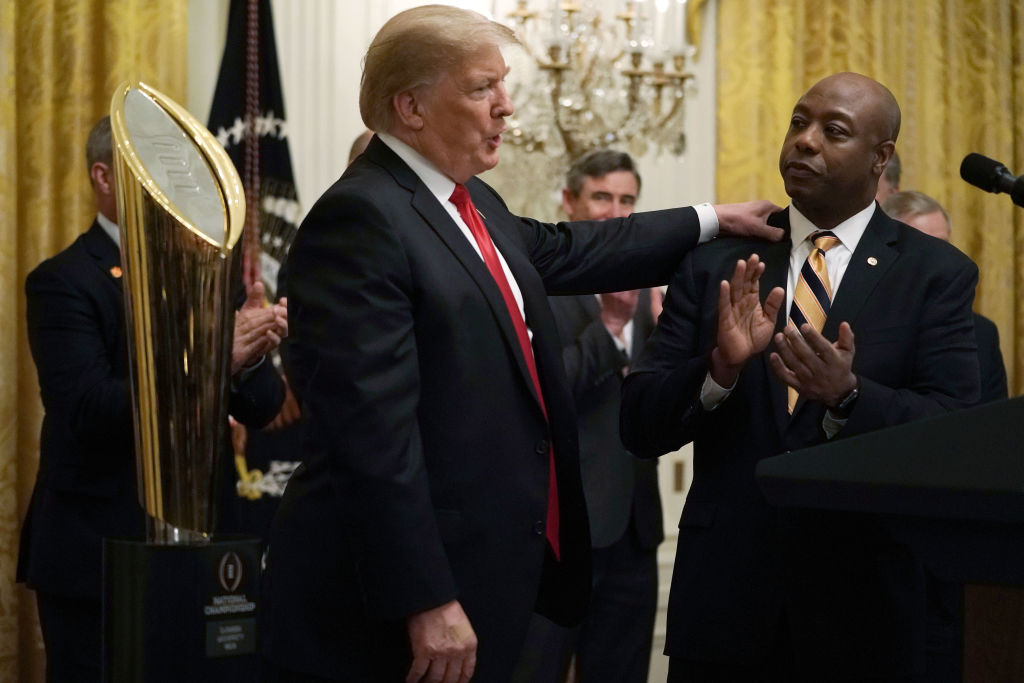Where Are The NWA’s? A Call For The Return Of Protest Music


Where is the prevailing subversive music in the Trump era? Is the scarcity merely a reflection of U.S. imperial collapse being met with the wider disgruntled masses’ inaction?
The Trump administration has confronted a record number of protests, but the music of this moment is generally not reflective of the ire bleeding from the people. The protest melodies of the past served many historical purposes in the service of mobilizing the masses into organization and alignment, stemming the tides of oppressive dominance that wield their will over subordinated classes. The prominent chorus of marginalized voices crafting refrains to galvanize the people has nestled into the same spaces of the nostalgic lullabies of our youth; deep in our consciousness, far away but not forgotten.
Yet, the new sunrise of movement music with prominent visibility has Chance the Rapper stoking the flames beneath the coals of the people’s feet, inciting us to take steps toward the warmth of a new sun—a new world. In this precarious era of hyper-individualism and the evermore urgent need for a collectivist ethos, what does Chance the Rapper mean to this crossroads? Will this music help to “kill the tyrant” within that leads to transformation?
The lyrics of “Letters” on Chance’s new project, Star Line, are an emotionally undressed refrain, confrontational in its direct eye contact with injustices featuring prominently in his psyche. Oprah once shared “No is a complete sentence,” a sentiment resounding throughout the sonic letter spelled out in this track. Chance is rejecting the status quo, rejecting the contemporary iteration of the Black church, an institution that holds reverence and respect traditionally, though simultaneously losing influence with each subsequent generation, driven by the hubris of the church’s messengers.
“Who told you your gossip could be louder than your shout.” “I watched you worship idols.” “Your dogma is silent bob.” “I write to you through tattooed tears.”
His faith in institutions is waning; they are no longer who he has believed them to be, and Chance contrasts this with a vivid recollection of what has been, calling back to the 1963 Baptist Street Church Bombing that killed four young black girls during the fight to end U.S. apartheid, also known as the Civil Rights Movement. The pacing of the rhythm guiding the letter over the course of four minutes, coupled with a delivery vacillating with resignation and pitching up to unfiltered anger, evokes a sense of an elevated heartbeat, a building adrenaline rush for the audience that settles into a stillness while we try to catch our breath before we get lost in the vexing feelings of emotional chaos.
Prominently, “Letters” reflects the emotional swell that is compelling protests erupting presently throughout the United States. Despite the despair, disappointment, and anger, Chance circles back, rallying himself, “Don’t trip, I’m on my way… be there soon.” To rally is to hope, to believe the final outcome is not yet set.
Later in the album, “Just a drop” spells out the needs of the community. Naming what you need is an integral part of organizing, community care, and collective action, as it serves to forge connections and as an opportunity to base build and cultivate relationships, actions directly subverting isolating hyper-individualism of white supremacist patriarchal capitalism. Our interconnectedness is the water that will sustain us in the marathon in pursuit of societal transformation. Chance lays bare the hostilities of the hegemony and contrasts the needs of the people with the excesses and nefarious uses of the “water” hoarded by the gluttonous dominating classes.
“They need enough water to destroy the facts” again reiterates the contrast of a life-giving force being used in the service of harm, continuously compelling listeners to arouse their collective consciousness.
There are limitations in the progressive expressions in Chance’s work, opening further space for more radical musicians to narrate the movement with rhythms that waft across time and space, an invisible nudge and embrace, urging us forward together. There is room to build upon his work, just as we take the lessons of past revolutions and innovate upon those models. We, the people who continue to resist in the face of seemingly impossible odds, are collectively representative of Chance’s refrain on “Speed of Love” crooning, “a hard-headed kid’s confidence is the hardest to kill… if you look up, that star gon’ shine.”
The proverbial culture is presently in a frantic lull; people are emphatic but not organized as effectively as previous iterations of social movements, potentially contributing to the quelling of subversive sounds to guide the movement. Chance’s album sets a new metronome for mainstream offerings of radical, thoughtful musicianship, inspiring listeners to reassert our communal agency in finding the warmth of new suns.
Danika L. is a radically curious reader and narrative writer in the DMV. Her creative locus centers on the history and contemporary experience of marginalized peoples throughout the diaspora.
SEE ALSO:
Coke Rap: A Soundtrack Of Survival For Middle-Aged Black Men
What's Your Reaction?
 Like
0
Like
0
 Dislike
0
Dislike
0
 Love
0
Love
0
 Funny
0
Funny
0
 Angry
0
Angry
0
 Sad
0
Sad
0
 Wow
0
Wow
0
































